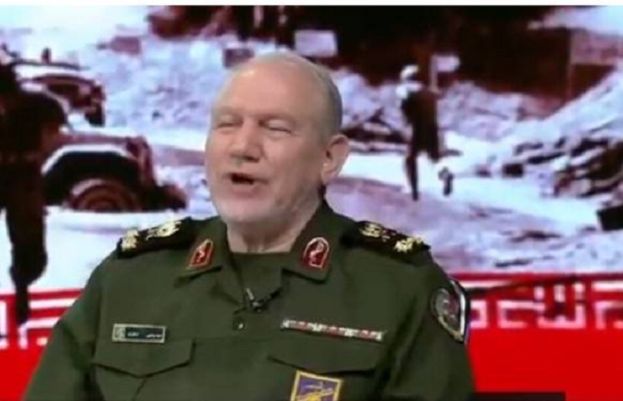A senior Iranian military adviser has welcomed the newly signed Pakistan-Saudi defence pact, calling it a constructive step for regional security while stressing Tehran’s readiness and commitment to deterrence. Major General Yahya Rahim Safavi, adviser to the Leader of the Islamic Revolution, said in a televised interview that the “Strategic Mutual Defence Agreement” signed in Riyadh between Prime Minister Shehbaz Sharif and Saudi Crown Prince Mohammed bin Salman should be seen as positive. “We view this treaty as constructive. Since Pakistan has said other countries can join, I recommend that Iran also take part,” Safavi stated, adding that Iran, Saudi Arabia, Pakistan, and Iraq could move toward a collective defence pact. He noted that although Riyadh and Islamabad would not finalize such an agreement without U.S. consent, Iran must demonstrate readiness as a regional power. “This is part of our military diplomacy and foreign policy,” he said. The Pakistan-Saudi accord, signed on September 17, declares that any attack on either state will be considered an attack on both, requiring a joint response. Both sides hailed it as a “landmark” deal to strengthen deterrence. The signing came just ahead of an emergency Arab-Islamic summit in Doha, called after Israeli airstrikes on Hamas leaders in the Qatari capital, despite Qatar’s mediation efforts to halt the Gaza war. Since then, several Muslim countries, including Iran and Pakistan, have urged the creation of a regional coalition to defend against foreign-backed aggression. Pakistan’s Defence Minister Khawaja Asif also stressed that the assault on Qatar could not have occurred without U.S. approval, calling for a NATO-style Islamic alliance. Meanwhile, Iranian commanders reaffirmed their full military preparedness. Major General Abdolrahim Mousavi, Chief of Staff of the Armed Forces, praised the IRGC’s Aerospace Force for its role in Iran’s recent 12-day campaign against U.S. and Israeli aggression. “These achievements show the strength of our strategy of active deterrence and decisive response,” Mousavi said during a meeting with IRGC Commander Major General Mohammad Pakpour. He added that Iran is continuing to modernize its defense systems and that coordination between the Army and IRGC ensures both deterrence and the safeguarding of national independence. Major General Amir Hatami, Commander-in-Chief of the Army, echoed the message, stressing that Iran constantly monitors adversary activities and will respond firmly to any miscalculation. Speaking at the closing ceremony of the Army’s 23rd joint cadet training program during Sacred Defense Week, Hatami reminded young officers of the Army’s mission to safeguard independence, territorial integrity, and the Islamic Republic. “The enemy must know that, with the capacities, capabilities, and lofty ideals of the Iranian nation, we will inevitably emerge victorious. Our armed forces, supported by the people and guided by the wise leadership of the Commander-in-Chief, have always defeated aggression and will continue to do so,” Hatami said. He also pointed to the decisive role of Ayatollah Seyed Ali Khamenei during the recent 12-day conflict, saying his strategic guidance ensured unity and success against the combined efforts of the United States and Israel. Iran’s military leaders stress that the country remains open to collective security frameworks while relying on its own deterrent capabilities. As Safavi underlined, the prospect of Iran joining a Pakistan-Saudi-led defence arrangement could strengthen regional security against foreign interference.–Tehran Times
Iran voices support for Pakistan-Saudi defence pact

